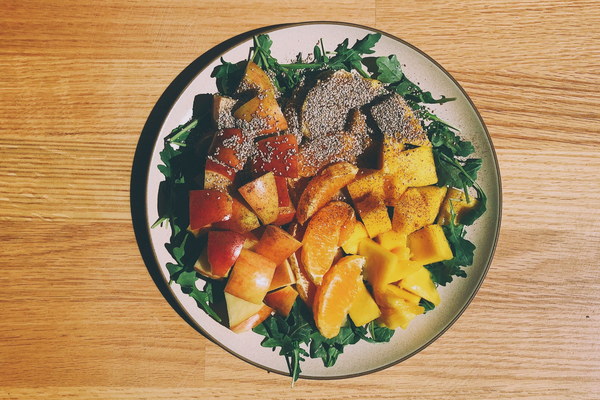Boost Your Thyroid Health A Comprehensive Guide to Nutritional Supplements for Hypothyroidism
Introduction:
Hypothyroidism, a common endocrine disorder, affects millions of people worldwide. It occurs when the thyroid gland fails to produce enough thyroid hormones, leading to a range of symptoms like fatigue, weight gain, and depression. While medication is crucial for managing hypothyroidism, dietary adjustments and nutritional supplements can significantly improve your overall health and thyroid function. In this article, we will explore the best food supplements for hypothyroidism, helping you take charge of your health and well-being.
1. Iodine
Iodine is an essential mineral required for the production of thyroid hormones. A deficiency in iodine can lead to hypothyroidism. Incorporate the following iodine-rich foods into your diet:
- Seaweed (kelp, nori, dulse)
- Iodized salt
- Dairy products (milk, cheese, yogurt)
- Eggs
- Fish (shark, cod, haddock)
2. Selenium
Selenium is a trace mineral that plays a vital role in the production and metabolism of thyroid hormones. Selenium deficiency can contribute to hypothyroidism. Include these selenium-rich foods in your diet:
- Brazil nuts (one ounce contains over 100% of the recommended daily allowance)
- Fish (tuna, halibut, cod)
- Lean meats (beef, chicken, turkey)
- Whole grains (oats, wheat, barley)
- Garlic
- Onions
3. Iron
Iron deficiency can cause symptoms similar to hypothyroidism, such as fatigue and weakness. Incorporate the following iron-rich foods into your diet:
- Lean red meat (beef, lamb, pork)
- Poultry (chicken, turkey)
- Fish (tuna, salmon, trout)
- Legumes (lentils, chickpeas, black beans)
- Green leafy vegetables (spinach, kale, collard greens)
- Fortified cereals and grains
4. Omega-3 Fatty Acids
Omega-3 fatty acids have been shown to help improve thyroid function and reduce inflammation. Include the following omega-3-rich foods in your diet:
- Fish (salmon, mackerel, sardines)
- Flaxseeds
- Chia seeds

- Walnuts
- Krill oil supplements
5. Vitamin D
Vitamin D plays a crucial role in thyroid function and overall health. Many people are deficient in vitamin D, especially those living in northern latitudes or those with darker skin. Here are some ways to increase your vitamin D intake:
- Spend time in the sun (10-30 minutes of midday sun exposure, depending on your skin type)
- Eat fatty fish (salmon, mackerel, tuna)
- Consume fortified foods (milk, orange juice, cereals)
- Take vitamin D supplements
6. Vitamin B12
Vitamin B12 deficiency is common in individuals with hypothyroidism, as the thyroid gland is responsible for the production of intrinsic factor, which helps absorb vitamin B12. Include these vitamin B12-rich foods in your diet:
- Beef liver
- Fortified cereals
- Fish (salmon, trout, mackerel)
- Pork
- Shellfish (clams, mussels, oysters)
- Cheese
7. Selenium and Iodine Supplements
If you have been diagnosed with hypothyroidism, your healthcare provider may recommend selenium and iodine supplements to ensure you are getting adequate amounts of these essential nutrients. However, it is crucial to consult with a healthcare professional before starting any new supplement regimen.
Conclusion:
Incorporating these food supplements into your diet can help support your thyroid health and alleviate symptoms of hypothyroidism. However, it is important to work closely with a healthcare provider to develop a personalized treatment plan that addresses your specific needs. By combining dietary adjustments with medication, you can improve your quality of life and manage hypothyroidism effectively.









